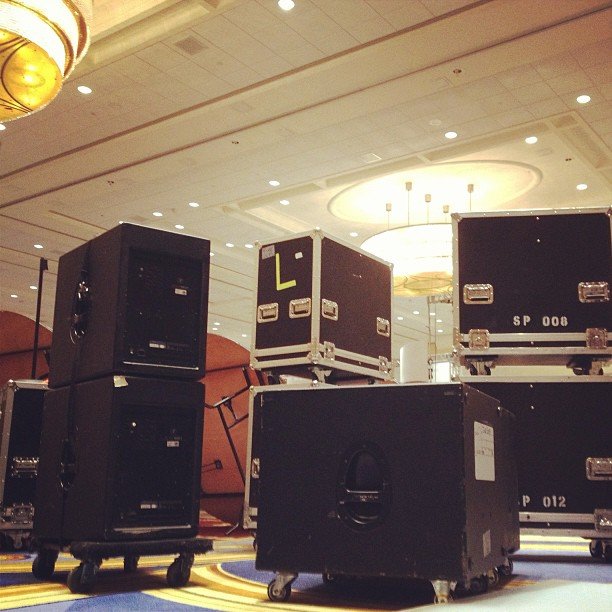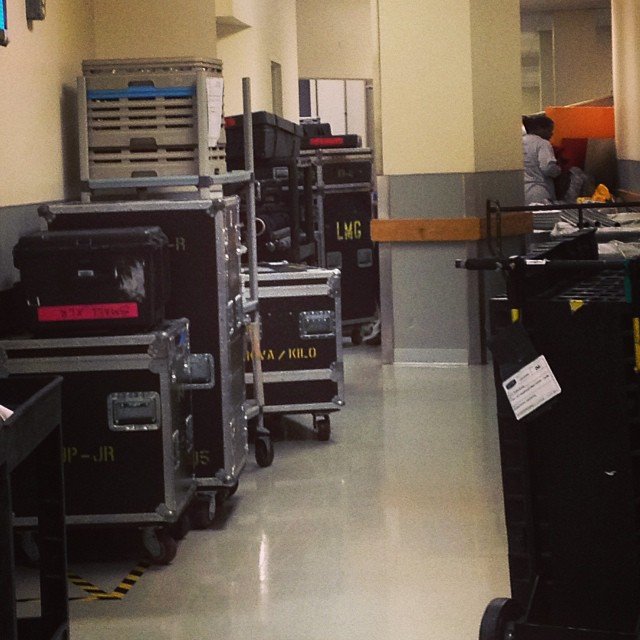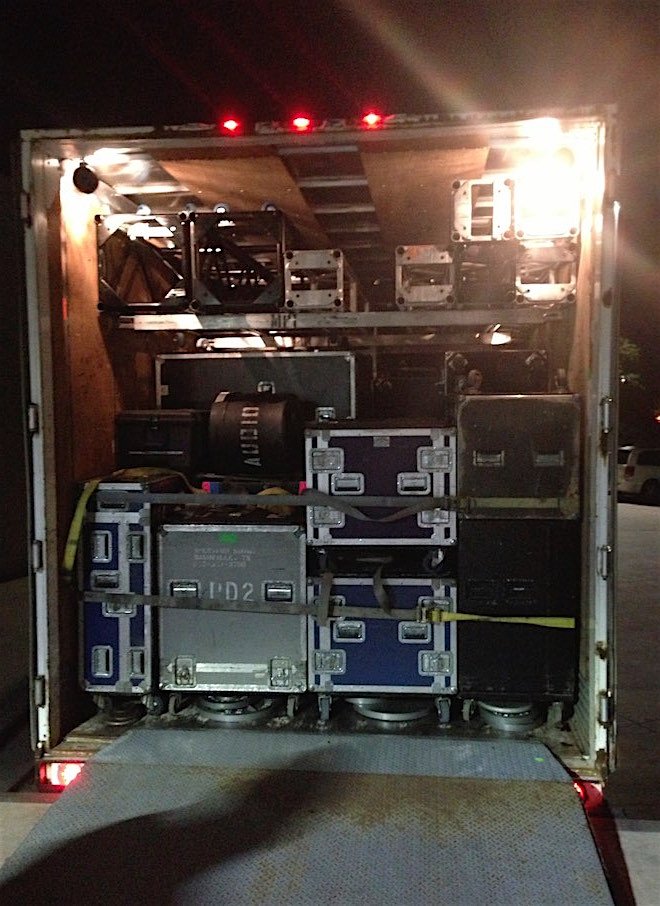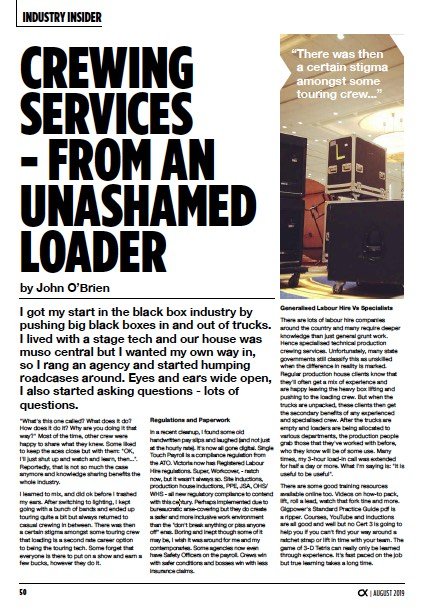News
16 Aug 2019
Crewing Services – From an Unashamed Loader
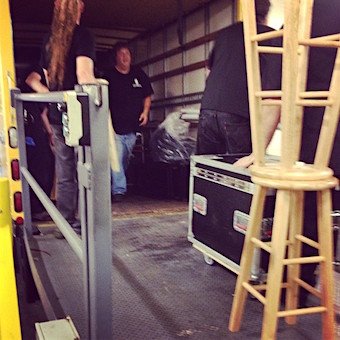
Subscribe to CX E-News
INDUSTRY INSIDER
Crewing Services – From an Unashamed Loader
by John O’Brien.
I got my start in the black box industry by pushing big black boxes in and out of trucks. I lived with a stage tech and our house was muso central but I wanted my own way in, so I rang an agency and started humping roadcases around. Eyes and ears wide open, I also started asking questions – lots of questions.
“What’s this one called? What does it do? How does it do it? Why are you doing it that way?” Most of the time, other crew were happy to share what they knew. Some liked to keep the aces close but with them: “OK, I’ll just shut up and watch and learn, then…”.
Reportedly, that is not so much the case anymore and knowledge sharing benefits the whole industry.
I learned to mix, and did ok before I trashed my ears. After switching to lighting, I kept going with a bunch of bands and ended up touring quite a bit but always returned to casual crewing in between.
There was then a certain stigma amongst some touring crew that loading is a second rate career option to being the touring tech. Some forget that everyone is there to put on a show and earn a few bucks, however they do it.
Regulations and Paperwork
In a recent cleanup, I found some old handwritten pay slips and laughed (and not just at the hourly rate). It’s now all gone digital. Single Touch Payroll is a compliance regulation from the ATO.
Victoria now has Registered Labour Hire regulations. Super, Workcover, – natch now, but it wasn’t always so. Site inductions, production house inductions, PPE, JSA, OHS/WHS – all new regulatory compliance to contend with this century.
Perhaps implemented due to bureaucratic arse-covering but they do create a safer and more inclusive work environment than the “don’t break anything or piss anyone off” eras. Boring and inept though some of it may be, I wish it was around for me and my contemporaries. Some agencies now even have Safety Officers on the payroll. Crews win with safer conditions and bosses win with less insurance claims.
Generalised Labour Hire Vs Specialists
There are lots of labour hire companies around the country and many require deeper knowledge than just general grunt work. Hence specialised technical production crewing services. Unfortunately, many state governments still classify this as unskilled when the difference in reality is marked.
Regular production house clients know that they’ll often get a mix of experience and are happy leaving the heavy box lifting and pushing to the loading crew. But when the trucks are unpacked, these clients then get the secondary benefits of any experienced and specialised crew.
After the trucks are empty and loaders are being allocated to various departments, the production people grab those that they’ve worked with before, who they know will be of some use. Many times, my 3-hour load-in call was extended for half a day or more.
What I’m saying is: “it is useful to be useful”.
There are some good training resources available online too. Videos on how-to pack, lift, roll a lead, watch that fork tine and more. Gigpower’s Standard Practice Guide pdf is a ripper. Courses, YouTube and inductions are all good and well but no Cert 3 is going to help you if you can’t find your way around a ratchet strap or lift in time with your team.
The game of 3-D Tetris can really only be learned through experience. It’s fast paced on the job but true learning takes a long time.
Crewing agencies know that it is in their best interests to keep knowledgeable and experienced crew (particularly crew leaders) on the books. However, the seasonal nature of the work presents a large obstacle to this. Flat out working over summer, flat out paying the rent in winter.
TV & film productions, exhibitions and events fill the gaps a bit. Retainers, office jobs, safety or training roles help keep some old hands on. The one time mainstays of Rock and Roll gigs and festivals are dead in the water in NSW and agencies in this area have also had to diversify their client bases and crew mixes to survive in recent years.
Leading Hand
From a purely logistical point of view, the job of crew leader is basic resource deployment. However, those resources are humans and they come with all of the foibles that us creatures possess.
There is an art to being a good crew leader, getting the most out of the team yet keeping their respect.
Personally, I never asked anyone to do anything that I wouldn’t do myself but did expect that their primary purpose was being there to work. The faster and more efficiently that this can be done, the more chance for early home time and banter.
One time, we had the truck doors closed 45 minutes after the show stopped and were drinking and playing pool with the artist while still on our 3-hour call. Nice when it works out that way.
When you are packing with a crew that you know and trust, it is almost ballet. Well practised motions, clear communications, everyone knows where and how to lift, no dropsies or crunches … and thus mountains get moved. Cleanly and quickly.
A good crew boss knows (or can quickly see) the strengths and weaknesses of their crew and will allocate them appropriately. Mentor and buddy systems are now widely used to match up greenhorns and old hands. Some crews forbid new members from being in the back of a truck before they show competency.
My favourite bit of running a crew is keeping the vibe up. It can help to be a bit of a joker when it’s late at night, or it’s been a long grind of a day and everyone is fading. There are more How-Weird? stories out there than I can contemplate but I rarely failed to enjoy the infectious enthusiasm that a bit of Freeman levity added to a call. Watch and learn from a master, kiddies…
Working Between Crews
Employers like loyalty. So do employees. It’s a two way street. As an avowed freelancer, I broke this rule and worked for several crewing agencies. My logic being that making a full time living from production work and without a full time wage or a retainer from anyone, it was “first to call, first to book me.”
I often got another call for another (sometimes better) gig in the same time bracket but would not let down the company who were now relying on me turning up. The only way I’d break that locked in date, was if a tour opportunity suddenly came up and if I could find a replacement of equal competence. Thankfully, that rarely happened and I later made it up in spades to the agencies in question.
The harder bit about being “the freelance guy” was getting along with the crew who were staying loyal to their particular company even as the winter gigs dribbled so slowly in. I copped a bit of stick and could understand some of their resentment. However, I could not see the sense in being on the dole to support doing only a couple of 3-hour calls a week so stuck to being a “gun for hire”.
In some quarters, that loyalty is now reportedly long gone anyway.
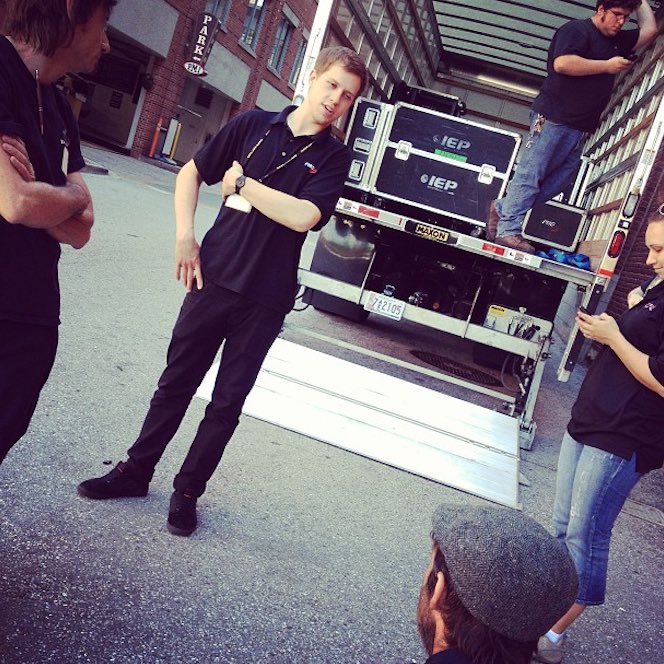
All said, I made sure that I was always (mostly?) early, came prepared with tools, worked hard individually and as a team member and tried to enjoy what I was doing – whichever crew I was working with. When I was on call, I was loading as a professional and made sure that my direct employers got value for money.
Years later I was responsible for production on a mega car launch and needed so many bodies that no single agency had experienced crew lists deep enough to make up the numbers properly. Solution was hiring 50 or so crew from each of the 2 major agencies.
I got the crew bosses together and we had a bit of a laugh about the different brands on shirts but split tasks and delegated, so that there wasn’t too much crossover and crews could stay with teams that they knew and trusted. There was some friendly rivalry and the odd stray look but hey, everyone got some work and everyone got paid! Share the love, payback and all that.
Give It A Go
Temporary crewing is not a sin – we are in the gig economy after all. You get paid to keep fit, get to check out all the new gear, watch how other techs go about their business and maybe even do some networking for other gigs.
If you can find a side hustle for the slow winter months, there are far worse ways to earn a living and it might even be the first step to greater things.
CX Magazine – August 2019 Entertainment technology news and issues for Australia and New Zealand – in print and free online www.cxnetwork.com.au
© CX Media
Lead image: #latergram #loadout #roadcase #gig #stagehands” by danielle_blue licensed under CC BY-SA 2.0
Subscribe
Published monthly since 1991, our famous AV industry magazine is free for download or pay for print. Subscribers also receive CX News, our free weekly email with the latest industry news and jobs.

